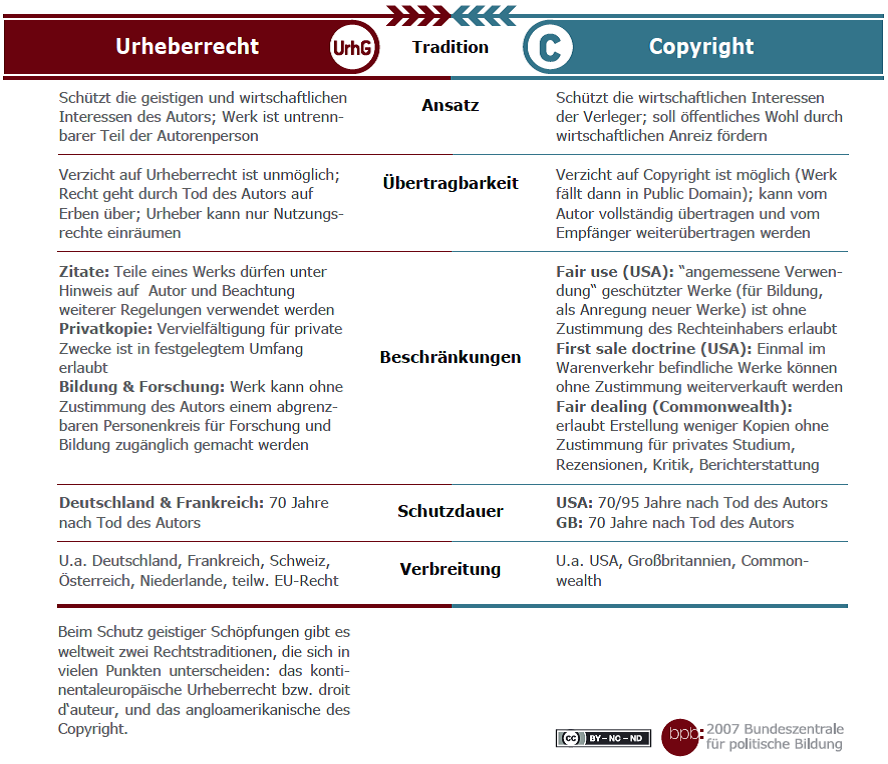Urheberrecht
Das Urheberrecht soll die berechtigten Interessen Dritter schützen, weshalb dieser Punkt besonders…
In international law there is no common proprietary and/or copyright law. Copyright and proprietary laws are subject to national legislation, however, there are analoguous general EU regulations. When it comes to protecting intellectual property, a distinction is made between the continental European author's right or „droit d‘auteur“ and the Anglo-American copyright law [1] which approach the issue in fundamentally different ways (see table). Author's right is automatically and inalienable associated with the creator/author and is, as such, intransferable whereas copyright offers protection from unauthorized reproduction and publication of the work. Copyright only applies to original works in their physically recorded form, which is why research data might not always be covered by copyright.
Third-party use of reserach data is only possible with permission from the author [2]. The copyright symbol © internationally stands for exclusive usage and exploitation rights. It may, for example, be used to protect images from unauthorized reproduction. Today the character only has symbolic effect. Copyright applies regardless of its use.
